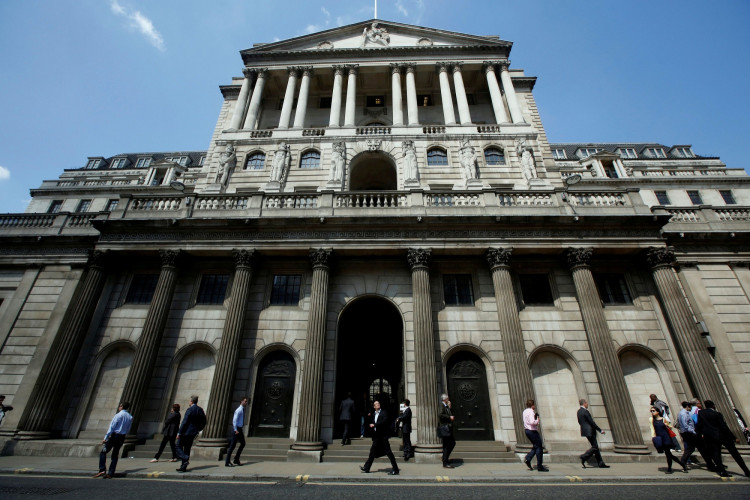The Bank of England on Thursday held its benchmark interest rate steady at 4.5%, citing escalating global trade tensions and lingering domestic economic uncertainty as key reasons for the pause.
The central bank's Monetary Policy Committee voted 8-1 in favor of maintaining rates, with one member supporting a 25-basis-point cut. The decision aligns with market expectations, as investors widely anticipated the BOE would keep borrowing costs unchanged.
"Since the MPC's previous meeting, global trade policy uncertainty has intensified, and the United States has made a range of tariff announcements, to which some governments have responded," the BOE stated. "Other geopolitical uncertainties have also increased and indicators of financial market volatility have risen globally."
Bank of England Governor Andrew Bailey reiterated the central bank's stance, noting that interest rates remain on "a gradually declining path." Speaking after the decision, Bailey emphasized, "There's a lot of economic uncertainty at the moment. We'll be looking very closely at how the global and domestic economies are evolving."
The BOE's decision arrives as the UK economy faces a mix of external pressures and internal stagnation risks. Globally, new tariff measures introduced by U.S. President Donald Trump and retaliatory responses from trading partners such as the European Union have heightened concerns among UK exporters. The Bank noted that most firms remain in a "wait and see" mode, with many wary of adverse demand effects from the trade disputes.
Domestically, economic indicators continue to show signs of weakness. The UK economy contracted by 0.1% month-on-month in January, prompting the BOE in February to halve its 2025 growth forecast to 0.75%. Additionally, the bank forecasts inflation to rise temporarily to 3.7% in the third quarter of this year, driven largely by energy costs.
Current inflation stands at 3%, still above the BOE's 2% target. "It's the Bank's job to make sure that inflation stays low and stable," Bailey said.
For homeowners and borrowers, the BOE's decision offers no immediate relief. About 600,000 homeowners with tracker mortgages tied to the BOE rate will see no change to their payments. Meanwhile, the average two-year fixed mortgage rate stood at 5.33% Thursday, with five-year deals averaging 5.18%.
The impact is already being felt by borrowers like Louise Gibson, a 46-year-old volunteering manager from Epsom, Surrey, who said, "I'm petrified about what the next five years will look like and I have no idea about how I am going to find hundreds of pounds extra to pay for my mortgage."
The BOE also flagged a broader slowdown in business confidence, as firms face a hike in National Insurance contributions next month and rising tax burdens. Many companies have paused hiring or cut back investment plans, the Bank reported.
Hussain Mehdi, investment strategy director at HSBC Asset Management, described the BOE's position as cautious but pragmatic. "A stagflationary tone to recent economic data means the MPC is balancing inflation considerations against downside growth risks and fragile confidence. For now, it seems the inflation side of the debate is dominant," Mehdi wrote in a note.
Looking forward, the BOE signaled it would adopt "a gradual and careful approach" to future rate adjustments, depending on inflation trends and economic performance. The central bank highlighted the possibility of adjusting policy if demand weakens or if wage and price pressures persist longer than expected.
Following the announcement, the British pound slipped 0.3% against the U.S. dollar by midday in London, while yields on 10-year gilts dropped over four basis points.






